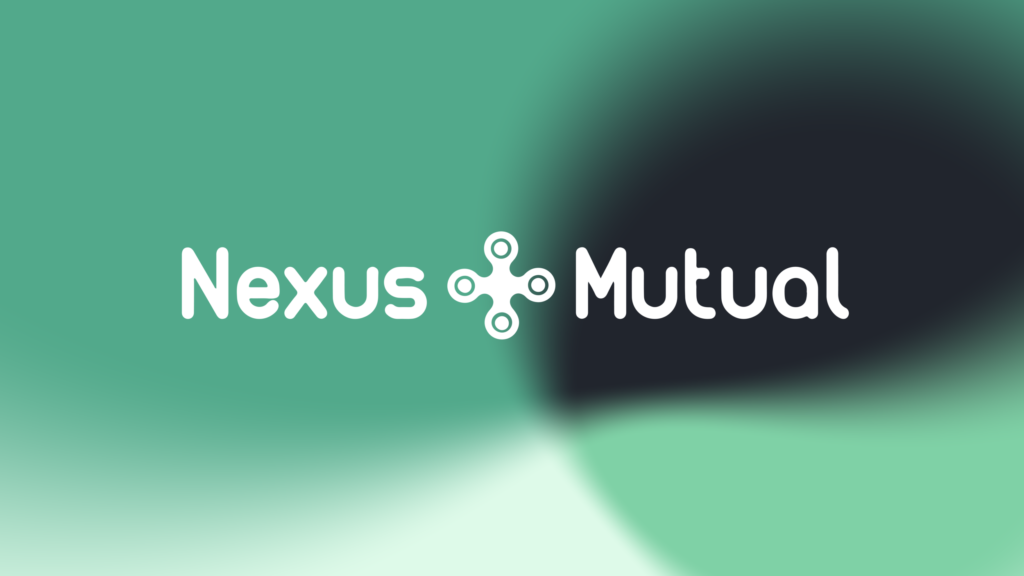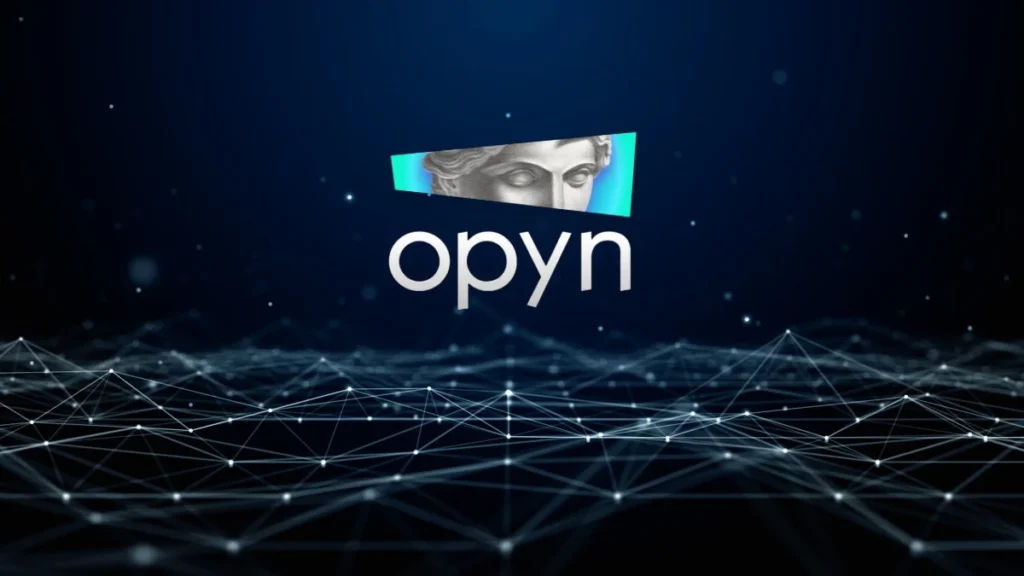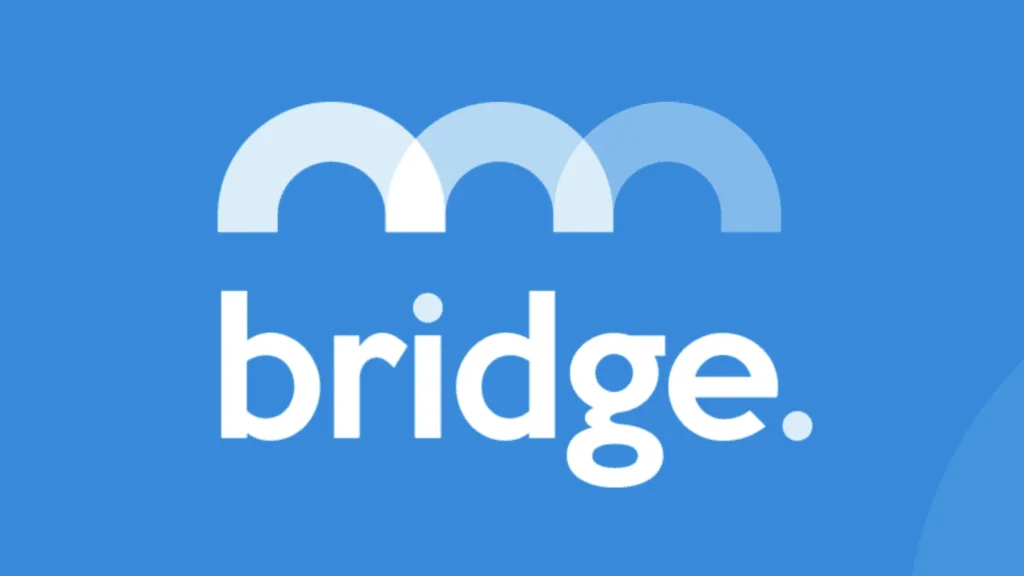Given the substantial risks involved with decentralized finance, insurance is required. This article examines the innovations in risk pooling and premiums in decentralized insurance.

The insurance business has been one of the most stable elements of the financial services industry, guaranteeing safety to many users worldwide.
However, technology has changed financial services, including insurance.
As DeFi and web3 solutions set new standards for systems, solutions, and processes across industries, blockchain applications in insurance are also gaining traction.
As a result, there has been a surge in interest in decentralized insurance in recent years. What does “decentralized insurance” mean? Blockchain’s application in insurance appears to have the potential to aid in developing decentralized insurance solutions.
DeFi, which allows for decentralized access to standard financial services, provides a more straightforward explanation of decentralized insurance.
Before we delve into innovations in risk pooling and premiums in decentralized insurance, let us understand what decentralized insurance is about.
Understanding Decentralized Insurance
Before you go for a decentralized insurance firm, you should first comprehend what it means. As of 2021, around 40 million people in the United States had invested, used, or traded cryptocurrency.
As a result, the number of threats to the blockchain and DeFi sectors and inherent volatility risks have increased.
Most people assume that decentralized insurance works by utilizing blockchain to supply traditional insurance services in a decentralized manner.
However, decentralized finance focuses on blockchain-based insurance models as alternatives to traditional insurance policies and models for minimizing DeFi risks.
The scope of a decentralized insurance platform focuses on decentralized access to standard insurance plans.
At the same time, it should try to protect cryptocurrency investors against assaults on DeFi protocols or smart contract weaknesses.
How Decentralized Insurance Works
Blockchain can help traditional insurance service providers solve challenges, particularly in the claims process. How? A decentralized approach to claims administration could be a solid start.
However, you might choose parametric insurance, eliminating the need for claims.
Rather than assessing damages to determine compensation, parameter-based insurance in a decentralized insurance firm could provide significant value by speeding up the claims payout process.
Parametric insurance could conclude the payout by ensuring that the parameters set in the insurance policy are met.
Let’s use crop insurance as an example to understand further how decentralized insurance works. A farmer could get parametric drought insurance, which specifies the specific conditions of the drought. When drought requirements are met, the policy requires insurance claims to be paid following the set terms.
It makes no difference if the farmer suffered economic losses due to the drought. Also, the parametric insurance policy eliminates the requirement for a claims adjuster to decide the final payout.
DeFi could help alter insurance since parametric insurance contracts can leverage smart contracts. Applying smart contracts in DeFi insurance processes could result in significant cost savings.
At the same time, consumers are increasingly interested in decentralized insurance via smart contracts due to the assurance of confidence and lower prices.
Decentralized insurance applications ensure that the policy includes descriptions of oracles, which are external sources of information. External information sources assist in confirming compliance with payout conditions.
Smart contracts are an important emphasis in solutions to decentralized insurance explanations, and they can potentially provide significant value advantages.
Self-executing contracts could aid in the effective management of policy objectives.
Smart contracts, for example, can operate as oracles in the parametric drought insurance policy by connecting to internet-connected rain gauges.
Decentralized insurance is efficient because it reduces expenses and conflicts in the insurance and claims management processes.
Most importantly, DeFi insurance protocols stand out in terms of security due to blockchain’s immutability. Decentralized insurance enhances not only the accessibility of insurance services but also the speed and dependability of the insurance process.
Features of Decentralized Insurance
Decentralized insurance stands apart from traditional insurance models due to its use of blockchain technology and smart contracts. Some of their unique features include;
- Pooling of risk
- Trustless transactions
- Peer-to-peer interaction
Pooling of Risk
Decentralized insurance platforms use the concept of risk sharing to include those who were previously excluded from standard insurance models.
Pooling risk entails policyholders contributing funds to a common pool, which is used to pay out claims for insured events.
By spreading risk among a vast network of users, decentralized platforms can provide coverage to individuals with higher risk profiles or who have difficulty acquiring insurance through traditional channels.
This inclusion is a significant benefit of decentralized insurance platforms since it ensures more people can access the required coverage.
For example, consider a small business owner who works in a high-risk industry. Traditional insurance companies may be unwilling to offer coverage owing to the perceived danger.
However, a decentralized insurance platform allows the business owner to join a risk pool with other players from related industries.
This risk pooling helps them to receive coverage at a reasonable rate, ensuring the protection of their business.
Trustless Transactions
Smart contracts are a major element of decentralized insurance networks. Smart contracts are self-executing contracts that follow preset rules and conditions.
These contracts are maintained on the blockchain, which guarantees transparency and immutability.
Smart contracts play an important role in automating the implementation of insurance plans.
When certain conditions are met, such as the occurrence of an insured event, the smart contract immediately initiates the payout to the policyholder.
This eliminates the need for intermediaries, lowering the danger of fraud.
For example, suppose a policyholder buys travel insurance through a decentralized insurance network.
If their flight is canceled, the smart contract will automatically start the claims procedure and send the funds to the policyholder without manual interaction.
This trustless transaction provides a smooth and efficient insurance experience.
Peer-to-peer Interaction
Decentralized insurance platforms use blockchain technology to provide direct peer-to-peer interactions between policyholders and investors.
This peer-to-peer concept eliminates the need for traditional insurance corporations, allowing people to interact directly with one another.
Decentralized insurance platforms provide transparency while lowering costs by eliminating intermediaries. Policyholders can negotiate terms and conditions directly with investors, creating a more equitable and personalized insurance experience.
Also, the peer-to-peer concept improves overall insurance process efficiency by eliminating delays caused by the involvement of many parties.
Assume a homeowner wishes to insure their property against natural calamities. They can connect with potential investors eager to give coverage through a decentralized insurance platform.
The homeowner and investor can negotiate policy terms, such as rates and coverage limits, without a traditional insurance company’s interference.
Risk Pooling in Decentralized Insurance
Decentralized insurance platforms provide a paradigm shift in risk management compared to traditional solutions.
Web3 risk management uses the ideas of decentralization, openness, and inclusion to rethink how risks are assessed and handled.
In traditional risk management, insurance companies control risk assessment and mitigation efforts. Policyholders rely on these centralized bodies to assess risks, determine premiums, and handle claims.
In contrast, Web3 risk management empowers individual policyholders through direct participation and democratizing decision-making.
It brings together a varied network of people who analyze and manage risks in a peer-to-peer setting.
Decentralized insurance systems can greatly improve risk management by increasing accessibility, efficiency, and customization.
By eliminating intermediaries, these platforms lower administrative expenses while increasing the speed with which policies and claims are performed.
Also, pooling risk across a diverse network of participants enables more accurate risk assessments and individualized coverage alternatives tailored to individual needs.
Before we go, let us see some benefits, limitations, and major decentralized insurance platforms.
Benefits of Decentralized Insurance
The applications of decentralized insurance have long been subject to speculation and ambiguity.
Moving blockchain beyond the realm of cryptocurrencies and into the transformation of the larger financial services industry is an absolute necessity.
A detailed overview of a decentralized insurance company’s use cases is the best approach to comprehend how it may help shape the future of insurance.
Using Information to Drive Administrative and Strategic Goals
An insurance company’s operations rely heavily on information. In the insurance industry, acquiring, processing, sharing, securing, and using information correctly and on time is vital.
However, traditional claims processes and obsolete technologies degrade user experience and increase maintenance costs.
The fundamentals of DeFi insurance, briefly outlined, reveal how it can assist insurers in adapting to new value-based payment models.
Decentralized insurance can help change the approaches to building insurance provider networks and contracting and payment systems.
Blockchain technology could facilitate the access and management of millions of transactions between clients and insurance companies.
It could automatically collect various agreement and transaction records and other dependable information sets.
Also, a decentralized insurance platform might combine data from several sources as inputs for smart contracts to make reliable choices.
Effective Fraud Detection
The next important use case for decentralized insurance would be to resolve problems caused by insurance fraud. Insurance fraud costs the business around $80 billion every year.
For example, healthcare insurance fraud occurs when providers file claims for treatments that were never given. In addition, life insurance fraud may be evident when applicants conceal critical medical information from the insurer.
Smart contracts could be used in DeFi insurance protocols to validate claim legitimacy by referring to various public records.
Decentralized insurance procedures could use job data to validate the information provided by life insurance applicants.
At the same time, the power of blockchain for secure and adaptable data collection from different locations for data analysis provides insurers with numerous benefits.
Insurers could effectively use data to detect, identify, and mitigate fraudulent conduct.
Better Customer Experiences
The flaws with the insurance application procedure have also been a major concern for the insurance industry.
DeFi insurance allows insurers to use blockchain technology to provide an easily accessible and comprehensive set of records for the application process.
For example, a thorough and interoperable health data record could aid in improving customer experiences.
The life insurance underwriting and application procedure can be finished in minutes, not days.
In addition, the decentralized insurance firm might collect safe and verifiable information about policyholders, allowing it to update insurer data.
Superior Compensation Process
DeFi insurance’s payout mechanism, enabled by smart contract automation, is far superior to the conventional insurance system.
Algorithms are used to determine the validity of insurance claims and quantify redemptions. As a result, the finalization process becomes more efficient and unbiased.
Secure and Fast Transactions
All transactions in DeFi insurance are decentralized and powered by distributed ledger technology.
Customers and partners are connected directly, with no intermediaries, resulting in quick, easy, and secure transactions.
Also, firms who handle a high volume of transactions regularly may be able to save significantly on third-party payment services.
Digital Asset Trading
Because there is no central authority in the DeFi model, crypto exchanges allow for peer-to-peer trading, giving users more control over their money.
For newcomers, getting started is as simple as clicking; you only need a stable internet connection and a wallet like MetaMask. You can now view your cryptocurrency assets regardless of location.
Expanded Lending Opportunities
Aave and Compound are decentralized peer-to-peer lending systems that give customers various incentives, including the option to borrow money with crypto assets as collateral and even lend crypto at higher interest rates.
Limitations of Decentralized Insurance
Some limitations of decentralized insurance are;
- Limited regulatory oversight
- The insurance pool is crowdfunded
- Smart contract risks
- It is an emerging industry
Limited Regulatory Oversight
Traditional insurers are not subject to the same regulatory oversight as decentralized insurance protocols.
This means that investors may face less protection from fraud or other issues.
The Insurance Pool is Crowdfunded
If a loss happens, the money to cover the event is divided among the parties involved.
If the event does not materialize, the money remains in the pool, providing a long-term return.
Policyholders may not receive the full premium refund if a loss does not occur.
Smart Contract Risks
Smart contracts, as utilized in DeFi insurance, are not ideal. Smart contracts can contain faults or errors that lead investors to lose money.
Before purchasing insurance, investors should thoroughly review the insurance procedure and smart contracts.
It is an Emerging Industry
Unfortunately, not all existing DeFi insurance strategies have been rigorously tested or proven effective.
If policyholders want to feel safe, they should research the appropriate DeFi insurance protocol for their needs.
Decentralized Insurance Platforms
There are various DeFi insurance platforms on the market. Each platform offers multiple packages and features.
The DeFi insurance market is becoming more competitive as it grows in size and sophistication.
True, several platforms presently offer insurance against an identical array of potential disasters, but the pricing and policy details will differ.
Because of the increased competition brought on by this trend, most of the most popular decentralized insurance systems are simple to use.
Here are some platforms that provide decentralized finance insurance coverage:
- Nexus mutual
- InsurAce
- Opyn
- Bridge mutual
Nexus Mutual

Nexus Mutual is one of the first and best-known examples of a DAI platform.
Nexus Mutual was founded in 2019 to handle the unique risks connected with the growing DeFi ecosystem, including the dangers of smart contract failures and hackers.
Traditional insurance firms frequently do not cover these risks, exposing DeFi participants to substantial financial losses.
Nexus Mutual is a decentralized mutual insurance firm that pools its members’ cash to offer coverage.
When a consumer buys a policy to protect against smart contract failures, the terms are encoded as a smart contract on the Ethereum blockchain.
If a claim is made, the platform’s community votes to determine if the smart contract’s terms have been honored. The smart contract will instantly execute the payout if the claim is approved.
This strategy not only offers necessary coverage for DeFi members but it also promotes community ownership and control.
Nexus Mutual’s usage of blockchain technology promotes openness in the claims process and decreases the likelihood of conflicts.
Nexus Mutual has already processed many claims, offering vital protection to users in the fast-developing DeFi area.
InsurAce

InsurAce is another major participant in the DAI area, providing a wide range of insurance products specifically for the DeFi environment.
InsurAce, launched in early 2021, covers many risks, such as smart contract failures, exchange hacks, and stablecoin de-pegging.
The framework safeguards DeFi users from the distinct and frequently changing hazards associated with decentralized financing.
What distinguishes InsurAce is its focus on multi-chain coverage, which allows users to protect their assets across many blockchain networks.
This adaptability is essential in DeFi, where users frequently interface with multiple blockchains and protocols.
InsurAce’s technology automates the claims process with smart contracts, guaranteeing that settlements are completed fast and openly.
In addition to its insurance products, InsurAce provides investment alternatives for users who want to provide liquidity to insurance pools.
These users can earn rewards on their investments while supporting the platform’s coverage options.
InsurAce is building a holistic ecosystem that meets the interests of DeFi participants while also fostering market growth and stability.
Opyn

Opyn is a decentralized insurance platform that offers options-based insurance products as a new way to protect DeFi members.
Opyn, launched in 2020, allows users to buy and sell options that protect against various risks, including price declines, smart contract failures, and liquidation events.
The Opyn platform is built on the Ethereum blockchain and uses smart contracts to automate option creation, trading, and execution.
For example, a user can buy an option to protect against a substantial drop in the price of a specific cryptocurrency. If the price falls below a specified threshold, the option automatically activates a payout, protecting the user’s finances.
This options-based strategy provides consumers with flexibility and customization, allowing them to adapt their insurance coverage to their needs and risk tolerance.
Opyn’s platform also enables users to act as liquidity providers, earning premiums for selling options to other users.
This dual-role approach provides insurance coverage and fosters a thriving market for risk management in the DeFi arena.
Bridge Mutual

Bridge Mutual is a decentralized insurance platform covering exchange hacks, stablecoin failures, and other cryptocurrency-related risks.
Bridge Mutual, which debuted in early 2021, enables customers to purchase policies that secure their assets on centralized exchanges, frequently exposed to hacking and other security breaches.
Bridge Mutual’s platform is based on the Ethereum blockchain and utilizes smart contracts to automate the underwriting and claims processes.
When a policyholder suffers a loss due to an exchange attack, the smart contract determines if the predefined conditions have been met and promptly initiates a payout if the claim is genuine.
This automation ensures that claims are processed efficiently and fairly, without human interaction.
In addition to providing coverage, Bridge Mutual allows users to stake their assets in the platform’s insurance pools and earn rewards for providing liquidity.
This staking mechanism strengthens the platform’s coverage capabilities and encourages participation and growth within the Bridge Mutual ecosystem.
Conclusion
If you wish to invest in DeFi, you should consider purchasing Decentralized insurance to protect your money from losses.
However, before purchasing insurance, you should thoroughly review the insurance protocol and smart contract to verify you are obtaining the protection you require.

